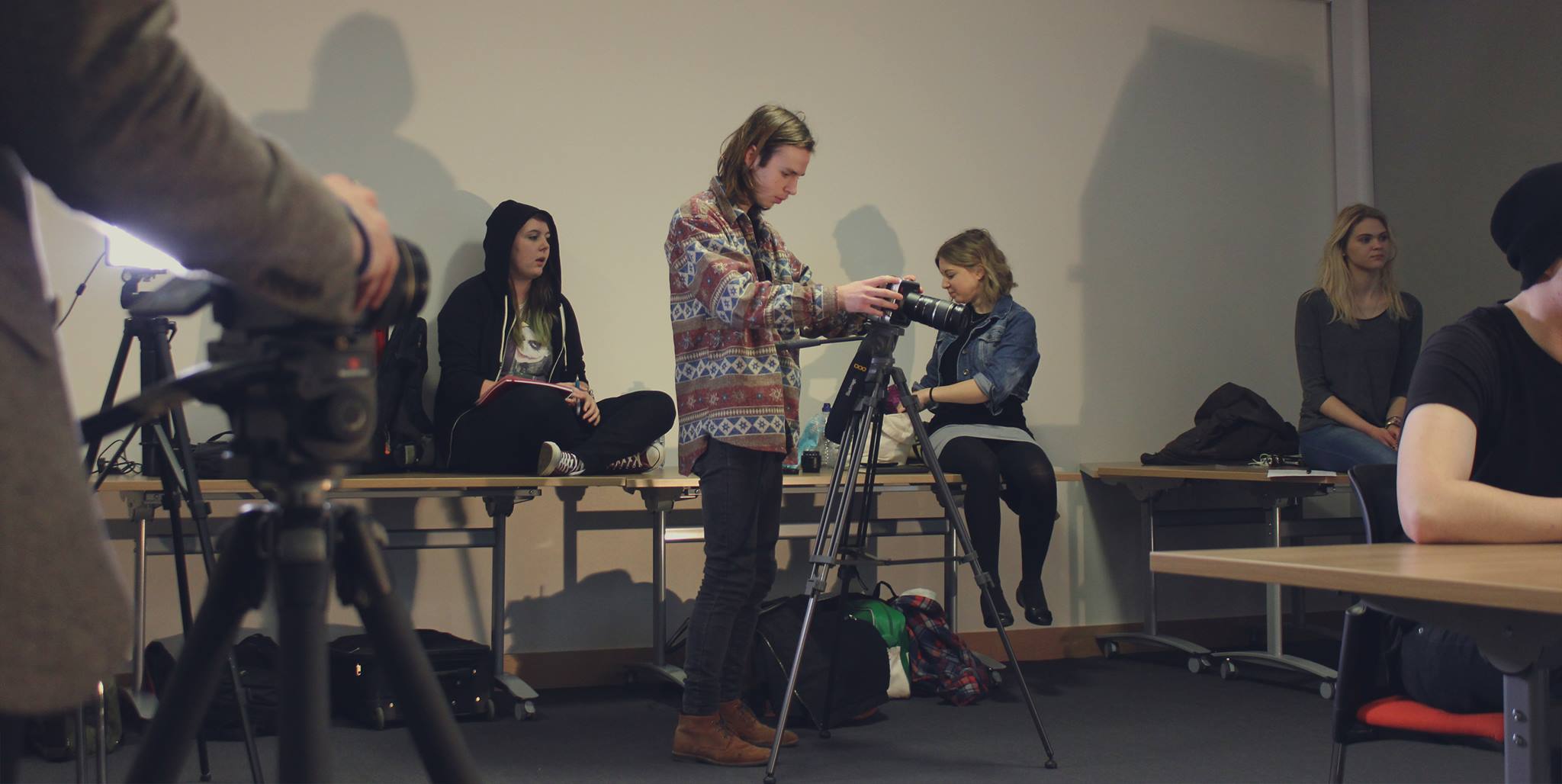The following is a transcript from this weeks tutorial video, for those who may have missed any information:
1) Show, Don’t Tell
“As cinema is a visual medium, it stands to reason that a great film is one which you should be able to follow without any sound or dialogue playing. Problems occur in the early stages of a script when the writer struggles with just how to get all the required back-story (referred to as exposition) across to the audience without the script turning into a tedious dialogue exchange. Your mastery of the craft can be judged on how well you handle exposition in a story. This is because screenwriting is not about giving information to your audience, but letting them find it for themselves.”
2) REWRITES! REWRITES! REWRITES!
“”If it can be cut out, then cut it out! Pretty much every film ever made could still be shorter. Being able to shrink 4 scenes down to 2 is a powerful skill that will make your script efficient and give your narrative momentum. Do you really need two separate scenes for your protagonist asking the girl out for a date AND applying for a job? What if the girl he’s asking works at the office he’s applying for a job at? Now you kill two birds with one stone!”
3) Know When to End Your Story
“A big problem with a lot of films is continuing the film after it’s logical conclusion (‘Lord of the Rings’, anyone?) Having reached the climax of a film it’s always best to end the film with one final piece of new information to stick with an audience. This can be an ambiguous image in which each possible outcome should still be clear, or more of a reveal in which the audience are taken aback Just remember: a conclusion doesn’t necessarily have to be a happy ending. Your aim is to make the moment memorable.”
4) Don’t Overload Your Script
“Most amateur screenwriters are inefficient with scene description and overload the reader with unnecessary information. A big no-no is including character thoughts in descriptions! Remember – only things that can be seen and heard should be included in the action, not thoughts. Another issue is overuse of parentheticals. These are direction for the actor. If you need to use a parenthetical to convey what’s going on with your dialogue, then it probably just needs a re-write. Also, it’s the director’s job to instruct an actor on how to deliver a line, not the writers.”
5) Use Subtext!
“What’s not being said is usually more interesting than what is being said. Clunky exposition and dialogue without subtext go hand-in-hand. Dialogue is always interesting when someone’s not saying what they really think, especially if they are flat out lying. Why? There’s a natural inclination for us to find out if the other person’s going to figure it out or not. When a character has something to hide, dialogue always has an extra spark to it. “
6) Structure is Key
“Although there are some general rules when it comes to structuring your script, it’s always best to judge for yourself if you think the pacing of your overall film is lacking, as well as the timing of the scene. A good way to judge the pacing of your film is to write a post-it or cue card for each page of the script with just the simplest explanation of what happens, then line them up on a wall, and step back to see exactly where people will lose interest.”
7) Think of the Audience
“How clear is your script? How will people react to it? Will people get it? You will have a world of depth in your head regarding your film but if you can’t translate it to the page, then it’ll never really exist. Get someone else to read your script and give feedback on how clearly your ideas come across.”
8) Stop COPYING!!!
“Go through every scene in your script and ask yourself (honestly), if you’ve seen that scene before in another film. If you have, then change it. Find an angle, even if it’s tiny, to make it feel fresh. One of the biggest problems with amateur scripts is that they feel too similar to stuff we’ve already seen. It’s easy to fall into the trap of following trends. Be aware of what your writing and why. If you don’t at least try to be original, your work will never stand out.”
9) Phrase Exercises
“Dialogue is the biggest bugbear of most scripts. It’s easy for them to sound like they’re written by one person. To find out your character’s unique way of speaking, take a simple phrase, then have your characters each say it in their own unique way. The goal is to get a feel for how each of your characters speak. Take a phrase, like “Good luck”, and see how each of the characters could say this. A bitter character might say, “Good luck you miserable prick.” A pathetic character might say, “Good luck” with sarcasm. A nice-guy might say, “Best of luck. You deserve it. You really do.” If each of your characters wouldn’t have their own way of saying a phrase, you either don’t know your characters well enough or you’re not doing enough with your dialogue. Also, Read Your Dialogue Out Loud! This might seem like an incredibly simple tip, but many writers just don’t seem to take notice – maybe because it seems weird to actually do it, but this exercise will instantly let you know if your dialogue sounds false or not.”
10) Have Something to Say!
“Strong scripts know what they are and what they’re trying to do. Weak scripts plough on without really being clear from the start. There’s plenty of people in the industry with great craftsmanship skills but nothing to say. What’s your take on the human experience? On relationships, on the mind, on human interactions? What’s your worldview. If you don’t feel like you have anything to say then you might want to wait on writing that script. Cinema means putting a mirror up to people and letting them take a long hard look at themselves. You may have an original idea for a story, but if it doesn’t speak to people on a personal level you most likely have nothing to say. So what do you have to say?”
If you have any further questions, please don’t hesitate to contact us

